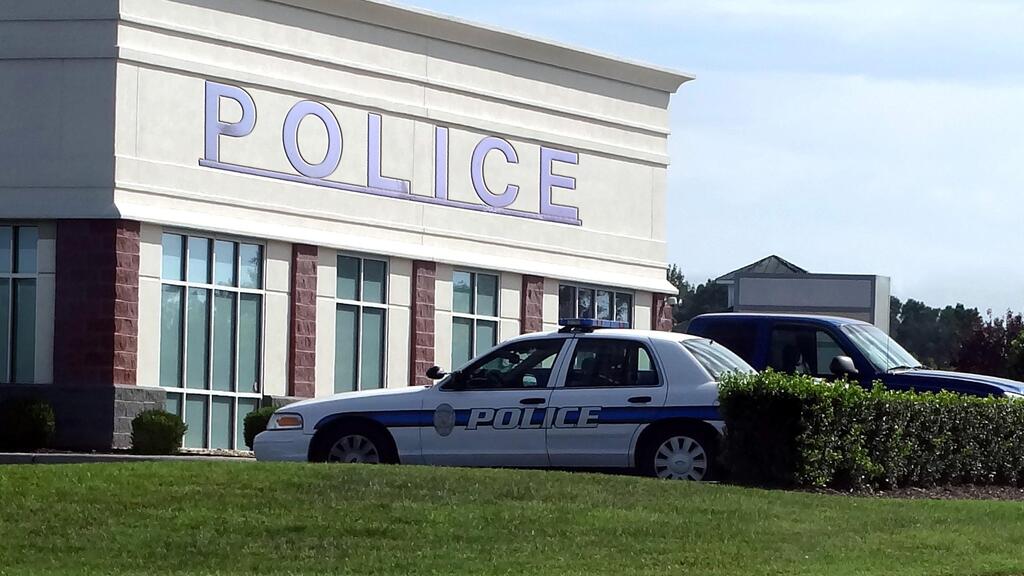 During the investigation of a crime law enforcement officers will use a wide variety of investigative techniques and tactics in an effort to first identify a suspect and then convict the suspect of the crime. One tool occasionally used by law enforcement is a polygraph, or lie detector, test. If you are approached by law enforcement officers and asked to submit to a lie detector test you will undoubtedly spend a good deal of time wondering “Should I take a lie detector test?” Given the unique set of facts and circumstances that surround every request to submit to a polygraph test there is no universal answer to that question other than to say you should never agree to take a lie detector test without first consulting with an experienced Nebraska criminal defense attorney.
During the investigation of a crime law enforcement officers will use a wide variety of investigative techniques and tactics in an effort to first identify a suspect and then convict the suspect of the crime. One tool occasionally used by law enforcement is a polygraph, or lie detector, test. If you are approached by law enforcement officers and asked to submit to a lie detector test you will undoubtedly spend a good deal of time wondering “Should I take a lie detector test?” Given the unique set of facts and circumstances that surround every request to submit to a polygraph test there is no universal answer to that question other than to say you should never agree to take a lie detector test without first consulting with an experienced Nebraska criminal defense attorney.
Contrary to what Hollywood would have you believe, the use of lie detector tests is relatively rare by law enforcement. The reasons for this are numerous, starting with the fact that the results are usually not admissible in court. The primary reason why test results are typically inadmissible is the simple fact that the veracity or accuracy of lie detector results is highly questionable.
The underlying principle of a lie detector test is that people experience a notable physiological response when they are being deceptive. Lie detector test, therefore, measures things such as your breathing, blood pressure, pulse, and perspiration while you are providing answers to questions. Some questions are “control” questions, such as “What is your name”, which are used to provide a standard set of readings. Relevant questions are then asked that pertain to the investigation, such as “Did you kill your boss?” The expectation is that if you are lying your pulse will quicken, heart rate will increase, blood pressure go up, and you will perspire more. The biggest problem with using lie detector results in a criminal investigation is that no two people respond exactly the same to anything, much less to a lie detector test. Moreover, with practice an individual can learn to “beat” a lie detector test.
With all that in mind, the question still remains whether you should take one if asked. Like many people, you may feel that refusing may make you appear guilty. Keep in mind, however, that taking the test and failing will definitely make you appear guilty. The fact that you are telling the truth is no guarantee that you will pass the test. Guilty people pass lie detector tests and innocent people fail them all the time.
Given the fact that the results of a lie detector test, even if they show truthfulness, will not likely be admissible in court and the risk of failing the test, even if you are not lying, it is rarely in your best interest to agree to submit to a lie detector test. The only way to know with certainty, however, is to consult with an experienced Nebraska criminal defense attorney as soon as you are asked to take the test.
If you have been asked to take a lie detector test in relation to an ongoing criminal investigation in the State of Nebraska, contact Petersen Criminal Defense Law 24 hours a day at 402-509-8070 to discuss your case with an experienced criminal defense attorney.
Serving the Omaha Community 24 hours a day 7 days a week
We Want to Defend YOU!
Contact Us for a Free Case ReviewWhy Choose Us As Your Criminal Defense Lawyers?
EXPERIENCED
When you’re accused of a crime, you still have rights. Unfortunately, many prosecutors will attempt to bypass these rights in order to get a conviction or a guilty plea. Do not let this happen to you. I’ve successfully defended countless Nebraska criminal cases - and I'm ready to go to work for you, too.
STRATEGIC
Effective planning and strategy play a crucial role in addressing criminal charges. I approach every case with the seriousness it deserves, understanding its importance to my clients. At Petersen Criminal Law, we adopt this mindset consistently. My goal is to create and execute a strategy that offers the best possible solutions and outcomes for my clients.
DETERMINED
I approach challenges with determination, always exploring solutions from multiple perspectives. When you entrust me with your case, you secure a dedicated ally who remains committed till the very end. My primary goal revolves around attaining optimal outcomes for my clients, and my proven track record speaks to that. In the realm of criminal defense, no case is trivial. Feel free to reach out, and let's commence this journey today.
Serving the Omaha Community 24 hours a day 7 days a week
We Want to Defend YOU!
Contact Us for a Free Case ReviewWhat Do Former Clients Have to Say About Us?
Our case results
Dismissed
Petersen filed a motion to suppress alleging that the stop and search were illegal.
Probation
Breath test excluded for failure to follow proper procedure. The Court agreed and ruled the breath test inadmissible at trial.
Not Guilty
Jury Trial: Client was charged with use of a firearm in commission of a felony.


